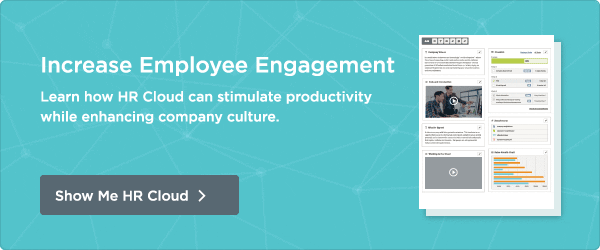

 Cut onboarding time
by 60%—here's the
Ultimate Checklist
that helped do it.
Cut onboarding time
by 60%—here's the
Ultimate Checklist
that helped do it.

To reduce turnover and retain the talent you worked hard to attract in the first place, boost your onboarding program with a dose of mentoring.
The first weeks are a “make or break” moment for your new hire. It’s the time that most employees decide to stay or go. In fact, according to research from The Wynhurst Group, “22% of staff turnover occurs in the first 45 days of employment, and the cost of losing an employee in the first year is estimated to be at least 3 times salary.” The data is convincing.
The onboarding experience is your chance to make a good impression, with a warm welcome and solid footing into the organizational culture. It’s also an opportunity to provide a sure foundation for career success. Incorporating mentoring into your onboarding program is an excellent way to fill the gaps that a typical orientation doesn’t cover. Success goes beyond the understanding of how to complete timesheets and filling out benefit forms.
Build a Network
Orientation promotes a sense of togetherness because everyone is there for the same reason. They’re all new hires trying to figure out what to do and where to go. They bond with each other and develop a network. After the first day, new hires typically have a group of resources to call at a moment’s notice.
In order to promote network-building during orientation, organize new hires around tables or pods. Encourage introductions and discussion. Provide learning and engagement activities that spark interest and collaboration. Remind them that this cohort is a resource beyond measure. They may not have all the right answers now, but through varying experiences and business opportunities, they’ll begin to share insight and expertise that will be invaluable.
Deploy the Buddy System
Everyone needs a buddy—a peer that can assist with basic questions regarding time sheets, vacations, parking, and concerns like “I can’t remember where my desk is.” These are important questions but can leave the new hire feeling a bit awkward in the presence of a manager. With the buddy system, a new hire can email their assigned buddy and get questions answered while retaining their “first day” dignity. The buddy system is designed to provide basic, operational information that helps the new hire adapt to the organizational culture without feeling “lost.” This system is designed to deliver high impact during the first 90 days and then levels off as the new hire becomes more comfortable.
For a successful match, find a peer in the same business group or department—someone who will be familiar with the work your new hire will perform. They should also have familiarity with the culture, leadership team, and should possess good interpersonal skills. There’s nothing more frustrating than a buddy who is not reachable and appears to ignore questions.
Counsel with a Counselor
Finally, consider matching new hires with a counselor. A counselor is similar to that of a mentor but is directly responsible for aligning the new hire with company business goals. They are more senior than the new hire and are typically in a different department. This employee has organizational tenure and has shown increasing levels of responsibility and success. They are accountable for
• Making introductions to key team members to facilitate networking,
• Providing career guidance and direction,
• Evaluating performance and establishing goals,
• Defining organization expectations while helping to adjust culturally; and
• Meeting regularly to discuss progress.
The counseling model is designed to be a long-term mentoring relationship that evolves along the career path. The results for the new hire are as follows:
• A sense of belonging and socialization,
• Understanding of the new hire’s role within the organization,
• Aligning the new hire’s goals with that of the organization,
• Increasing retention and engagement; and
• Enhancing productivity and creativity.
Incorporating mentoring into your onboarding program takes the new hire experience to the next level. It fills in the gaps with structure, provides organizational alignment, and quickly helps the new hire adjust to the culture. Research shows that new “employees who attend a well-structured onboarding program are 69% more likely to stay with the organization after 3 years.” Incorporating mentoring ensures that the “good feeling” extends well beyond the initial onboarding period, creating a lasting impression.

Keep Reading
BambooHR vs HR Cloud: Which HRIS Actually Scales for Growing Companies?
TL;DR: BambooHR's apparent simplicity becomes a major limitation as companies scale past
The Hidden Metrics of Frontline Success: Beyond Engagement Scores
"What gets measured gets managed, but what gets measured well gets transformed." — Peter
Embracing Diversity: Recognizing Different Cultures in the Workplace
Workplaces today reflect the incredible diversity of the world around us. People bring
Like What You Hear?
We'd love to chat with you more about how HR Cloud® can support your business's HR needs. Book Your Free Demo

Build a Culture of Recognition. Boost Engagement. Guaranteed.
Workmates empowers employees to stay informed, connected, and appreciated—whether they’re on the front line, in the office, or remote. Recognition drives 12x higher engagement.Trusted by industry leaders in every sector




Cut Onboarding Costs by 60%.
Take the confusion and follow-ups out of onboarding with automated workflows, digital forms, and structured portals—so new hires ramp faster 3X quicker.Trusted by industry leaders in every sector





